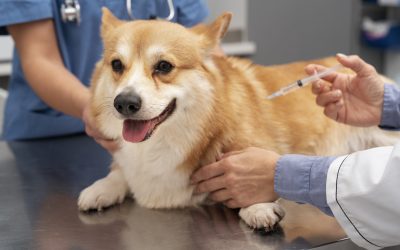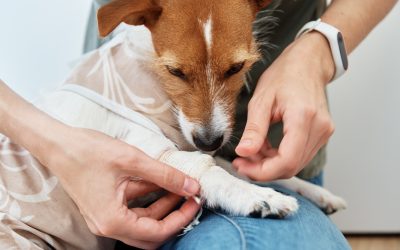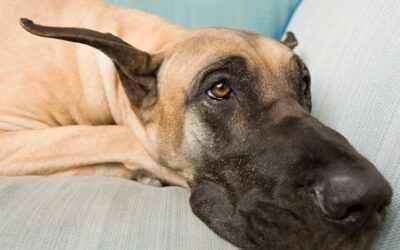Dog Diarrhea With Mucus [Causes & Solutions]
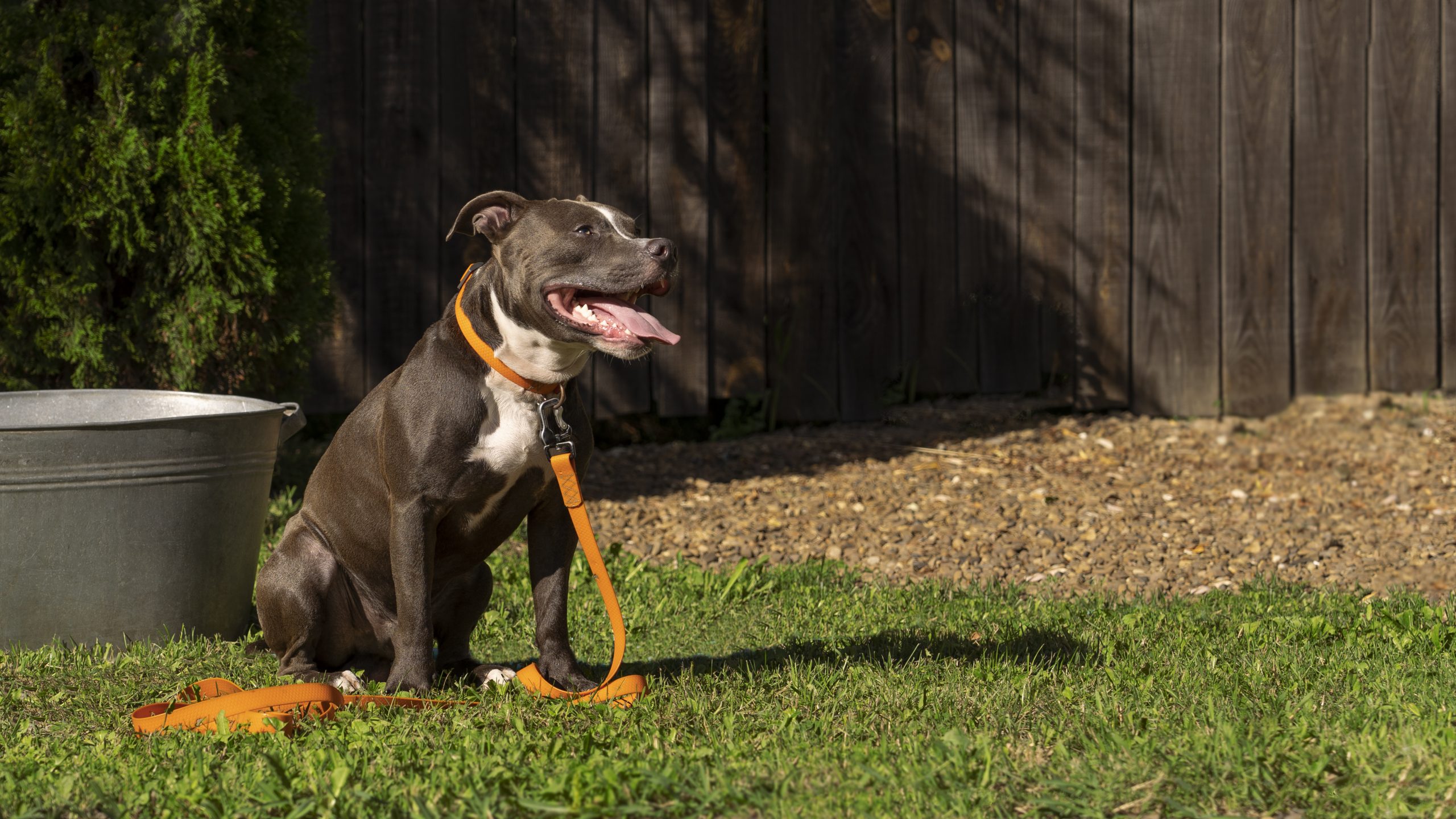
Updated October 25, 2025
As a pet owner, it can be distressing to see your beloved furry friend suffering from diarrhea with mucus. This condition, characterized by loose stools accompanied by a slimy discharge, is not uncommon in dogs. Understanding the causes and solutions for dog diarrhea with mucus can help you better care for your four-legged companion.
Various factors can cause dog diarrhea with mucus. One common cause is dietary indiscretion, which occurs when dogs consume something they shouldn’t, such as spoiled food or garbage. This can irritate the digestive system and lead to loose stools with mucus. Another possible cause is a bacterial or viral infection, which can result in inflammation of the intestines and the production of excess mucus. Additionally, certain medical conditions, such as gastrointestinal parasites or food allergies, can contribute to diarrhea.
Why Does Diarrhea With Mucus Happen in Dogs?
Just like humans, dogs can have off days when their digestion isn’t quite right. Several common triggers may contribute to diarrhea with mucus:
- Dietary indiscretion: Dogs are curious by nature and sometimes eat things they shouldn’t, like leftovers, spoiled food, or even garbage. These unfamiliar items can irritate their digestive tract and lead to mucus in the stool.
- Bacterial or viral infections: Germs such as Salmonella, Campylobacter, and Parvovirus can upset your dog’s system, inflaming the intestines and prompting the body to produce more mucus.
- Gastrointestinal parasites: Parasites such as Giardia or worms can disrupt the normal functioning of the digestive system, leading to diarrhea with mucus.
- Food allergies or intolerances: Just like humans, dogs can develop allergies or sensitivities to certain foods. These allergic reactions can cause gastrointestinal symptoms, including diarrhea with mucus.
Common Symptoms Of Dog Diarrhea With Mucus
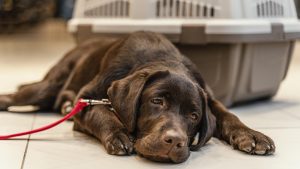
When your dog is experiencing diarrhea with mucus, there are several additional symptoms to watch out for. These symptoms can help you determine the severity of the condition and whether a visit to the veterinarian is necessary.
- Abdominal discomfort: Dogs with diarrhea may exhibit signs of abdominal discomfort, such as bloating, cramping, or restlessness.
- Loss of appetite: Diarrhea can cause dogs to lose their appetite or have a reduced interest in food.
- Vomiting: In more severe cases, dogs may also experience vomiting along with diarrhea and mucus.
When To See a Veterinarian
While mild cases of dog diarrhea with mucus can often be managed at home, there are instances when it is crucial to seek veterinary care.
- Persistent or worsening symptoms: If your dog’s condition persists for more than 24 hours or becomes progressively worse, it is important to consult a veterinarian. This could indicate a more serious underlying condition that requires medical intervention.
- Dehydration: Diarrhea can lead to dehydration, which can be dangerous for dogs. If your dog is showing signs of dehydration, such as excessive thirst, dry gums, or lethargy, seek immediate veterinary attention.
- Blood in the stool: The presence of blood in the stool is a red flag and should never be ignored. It can indicate a severe infection or a more serious condition, such as gastrointestinal bleeding.
- Pre-existing medical conditions: If your dog has pre-existing medical conditions, such as a compromised immune system or a history of gastrointestinal issues, it is best to consult a veterinarian for guidance.
Treatment of Mucus in Dog Poop
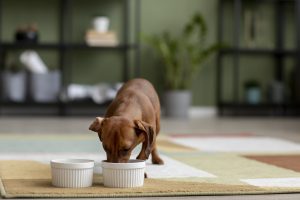
As a veterinarian, Jennifer Coates, DVM, stated in the PetMD article:
Appropriate treatment will depend on the results of these tests and your dog’s eventual diagnosis. However, often a diet change or even a prescription diet are needed. Based on the underlying cause, anti-diarrheal medication, immunosuppressants, or antibiotics may be prescribed.
Probiotics can be a good addition to treatment plans for mucus in stool.
In mild cases of dog diarrhea with mucus, you can try some home remedies to alleviate the symptoms and help your furry friend feel better.
Home Remedies
- If your dog has just a little bit of excess mucus in their stool but is otherwise feeling fine (eating well, happy, active, no diarrhea), ask your vet about trying to treat at home before an office visit and diagnostic work-up.
Short-term Bland Diet
- Sometimes switching to a highly digestible diet or adding additional fiber to a dog’s diet can help.
- Boiled white meat chicken (no skin or bones), white rice, and a teaspoon to a tablespoon (depending on the size of the dog) of canned pumpkin is a good, homemade option that you can typically feed your dog for a few days.
Probiotics
- A small amount of mucus in the stool—in an otherwise healthy dog—does not require treatment with medications, but a probiotic supplement may help.
- Look for probiotic products designed specifically for dogs or ask your
Preventing Dog Diarrhea With Mucus
While it may not be possible to prevent dog diarrhea with mucus entirely, you can take steps to minimize the risk and keep your dog healthy.
- Proper nutrition: Feed your dog a balanced diet that meets their nutritional needs. High-quality dog food can support healthy digestion and reduce the likelihood of gastrointestinal upset.
- Avoid dietary indiscretion: Keep a close eye on your dog and prevent them from eating anything they shouldn’t, such as garbage or toxic plants.
- Regular veterinary check-ups: Regular veterinary check-ups can help identify any underlying health issues early on and prevent them from escalating into more serious conditions.
- Good hygiene practices: Wash your hands thoroughly after handling your dog’s waste or providing them with meals. This can help prevent the transmission of bacteria or parasites.
How Can Pet Insurance Help You in This Situation?
Having pet insurance can provide financial peace of mind in situations where veterinary care is necessary for dog diarrhea with mucus. Pet insurance can help cover the costs of diagnostic tests, medications, and treatments, allowing you to focus on providing the best possible care for your furry friend without worrying about the expenses.
Reimbursement
This method is the most common for pet insurance companies. You pay out of pocket for the veterinarian bill, and then the insurance company reimburses you for what’s covered under the insurance plan. The steps look like this.
- You pay the vet bill after your dog’s visit.
- You fill out the pet insurance claim form.
- Submit the claim form and other required documentation to the insurer.
- After the claim is approved, you will be reimbursed for eligible expenses.
Odie’s Illness and Injury pet health insurance plan offers comprehensive coverage for your dog.
What Does Odie Pet Insurance Cover?
Pet insurance covers various veterinary expenses, providing financial protection and peace of mind for pet owners. Here are the details of the coverage options offered by Odie Pet Insurance:
Illness & Injury Plan
The Illness & Injury Plan is an all-inclusive insurance plan designed to cover a wide range of medical needs for your pet. This plan includes comprehensive coverage for various illnesses, injuries, and veterinary services. Some of the covered items include:
- Veterinary exams and consultations
- Diagnostics (e.g., X-rays, lab tests)
- Prescribed medications
- Surgeries and hospitalization
- Rehabilitation, acupuncture, or chiropractic treatments
- Medically necessary supplies
- Euthanasia and cremation
The Wellness Plan
The Wellness Plan is a monthly membership that focuses on preventive care and covers routine veterinary services.
- Provides reimbursements for routine care items, including wellness visits (exams and vaccines), testing and parasite prevention, dental cleanings and at-home dental care, vitamins, supplements, and more.
- Through Odie’s partnership with Petivity, a leader in smart pet products and proactive care, Wellness Plan members can also receive reimbursements for Petivity devices and health kits, as well as eligible Purina food and supplements.
- Total reimbursement up to $700 per year.
FAQs
What is mucus in dog stool, and when is it concerning?
Mucus is a slime-like substance that lubricates the colon, appearing as clear jelly or snot-like material on stool. Small amounts are normal and help prevent constipation. Excessive mucus indicates a health problem requiring vet attention, especially if persistent beyond 24 hours or accompanied by blood, vomiting, lethargy, or loss of appetite.
What causes dog diarrhea with mucus?
Common causes include dietary indiscretion (eating garbage/spoiled food), bacterial/viral infections, parasites (whipworms, roundworms, hookworms, Giardia), food allergies/intolerances, inflammatory bowel disease (IBD), stress colitis (from routine changes, loud noises, anxiety), sudden diet changes, and certain medical conditions affecting digestion.
What do different mucus colors mean?
- Clear/white: Colitis (large bowel inflammation)—most common.
- Yellow: Digestive problems, food intolerance, bacterial overgrowth, liver/gallbladder issues.
- Green: Eating grass, food coloring, or bacterial infection.
- Red/pink (bloody): Burst blood vessels, inflammation, severe conditions like parvovirus or AHDS, which requires immediate attention.
When should I see a vet?
Contact your vet if diarrhea with mucus persists over 24 hours, contains blood, or is accompanied by vomiting, lethargy, loss of appetite, fever, abdominal pain, dehydration, inability to keep water down, severe straining, or only mucus without stool. Puppies should be seen sooner as they dehydrate quickly.
How is diarrhea with mucus diagnosed and treated?
Diagnosis includes health history, physical exam, fecal exams (parasites), blood work, urinalysis, and possibly parvo testing. Treatment depends on cause: bland diet (boiled chicken and rice), prescription GI diets, probiotics, anti-diarrheal medications, antibiotics (only if bacterial), dewormers, immunosuppressive meds for IBD, or fluid therapy. Never restrict water—dogs need hydration.
How can I prevent diarrhea with mucus, and what home care helps?
- Prevention: Avoid sudden diet changes, keep garbage out of reach, maintain regular deworming, use year-round heartworm prevention, avoid table scraps, manage stress, provide consistent routine.
- Home care (mild cases): Provide a bland diet consisting of boiled chicken, white rice, and a teaspoon of plain canned pumpkin. Ensure access to fresh water. Add probiotics. For adults, begin with 24-hour fasting, followed by gradual food reintroduction. Monitor closely and contact the vet if the condition worsens.

